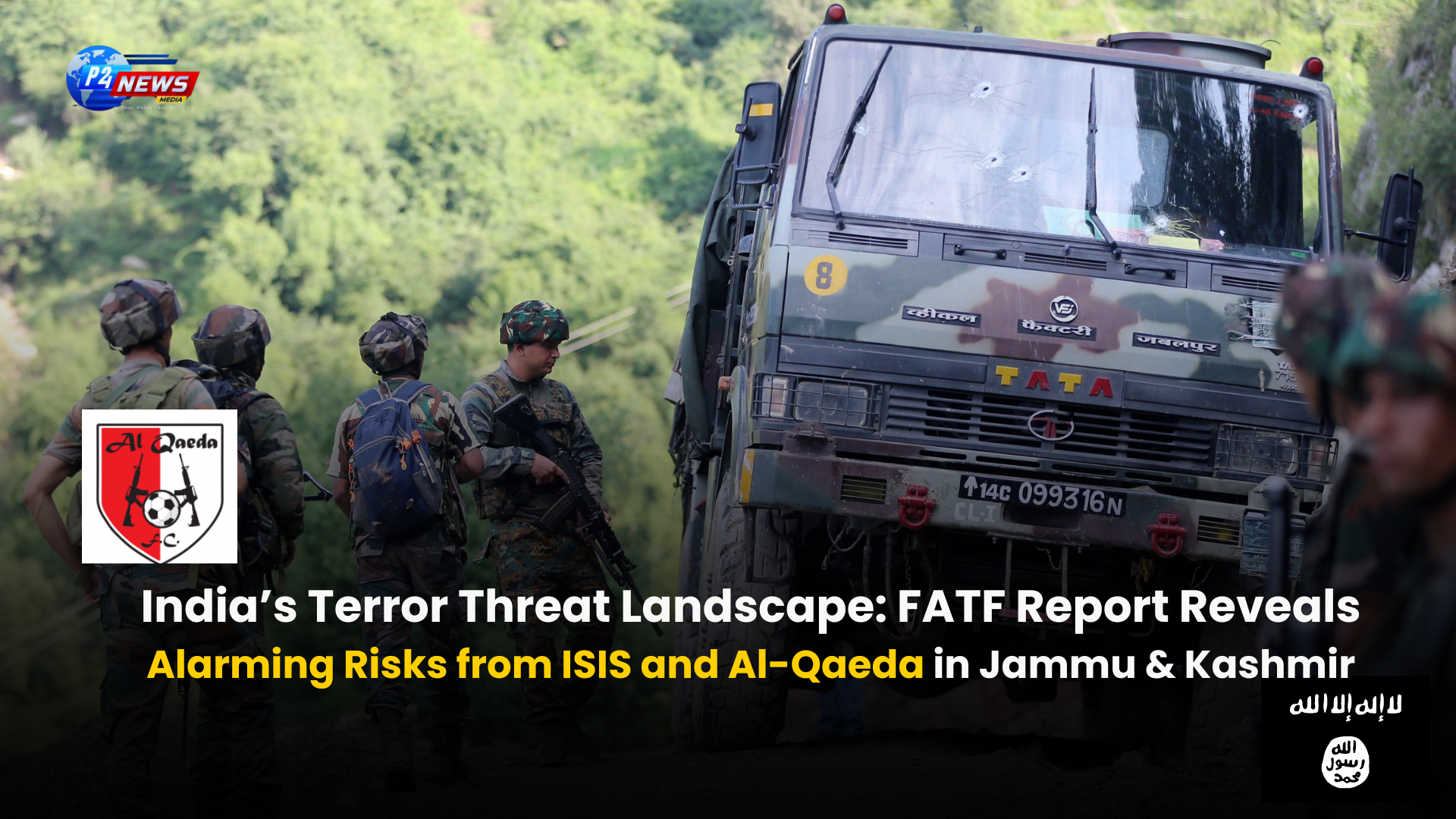India is currently grappling with a complex landscape of terrorism threats, as highlighted in a recent report by the Financial Action Task Force (FATF).
India is currently grappling with a complex landscape of terrorism threats, as highlighted in a recent report by the Financial Action Task Force (FATF).
India is currently grappling with a complex landscape of terrorism threats, as highlighted in a recent report by the Financial Action Task Force (FATF). The report emphasizes the urgent need for effective measures to address these multifaceted challenges, particularly from groups linked to ISIS and Al-Qaeda.
The FATF specifically points to the dangers of terrorist financing in Jammu & Kashmir, where various extremist groups are known to operate. These organizations are not only active within the region but also maintain connections that could potentially affect broader national security.
According to the report, the primary sources of money laundering in India stem from illegal activities conducted within the country. This internal problem complicates efforts to combat financing for terrorist activities, as the funds generated are often used to support such operations.
In evaluating India's performance, the FATF rated the country's effectiveness in money laundering investigations and prosecutions as "moderately" effective. This rating indicates that while some progress has been made, significant gaps still exist in the overall system.
The report outlines that constitutional challenges have hindered the prosecution of money laundering cases over the past five years. An overwhelmed court system, struggling with backlogs, has resulted in many cases remaining unresolved for extended periods, thereby delaying justice.
Over the past five years, the Enforcement Directorate has seized assets worth €9.3 billion linked to suspected financial criminals. However, the report highlights a stark contrast, noting that the total confiscations following convictions amounted to less than $5 million, pointing to inefficiencies in translating enforcement actions into successful prosecutions.
While the FATF acknowledges India's robust framework for anti-money laundering (AML) and combating the financing of terrorism (CFT), it calls for significant improvements in prosecuting related cases. The report stresses the importance of enhancing legal processes to ensure that offenders are held accountable.
In its evaluation, the FATF found that India was fully compliant or largely compliant in 37 out of 40 stringent parameters designed to tackle financial crimes, including money laundering and terrorism financing. However, it identified three areas where India remains only partially compliant, necessitating focused improvements.
The report categorizes India's terrorism threats into six distinct areas. These include groups affiliated with ISIS or Al-Qaeda, various regional insurgencies, and left-wing extremist groups. Each category presents unique challenges that require tailored responses to effectively mitigate risks.
Like
Dislike
Love
Angry
Sad
Funny
Pray
'Trump Tracker: Tulsi Gabbard's Surprising Appointment as US Intelligence Chief
November 14, 20249th Ayurveda Day in Melbourne: A Celebration of Ayurvedic Innovations and Global Health Impact
November 10, 2024🍪 We Value Your Privacy and Experience Hi there! We use cookies to enhance your browsing experience, provide personalized content, and analyze site traffic. By continuing to use our site, you consent to our use of cookies.







Comments 0